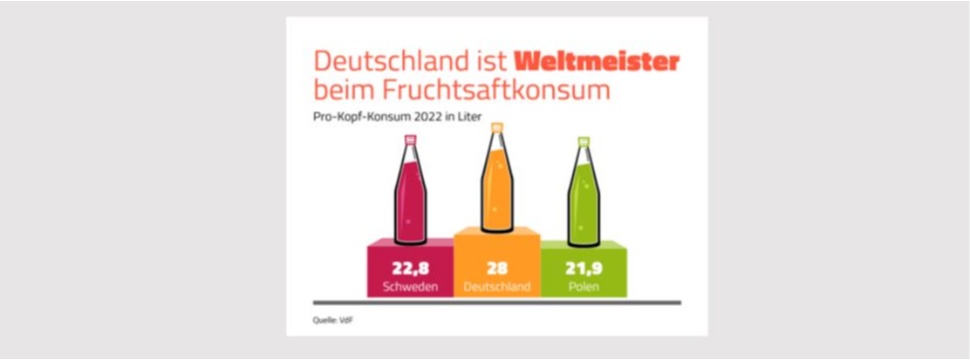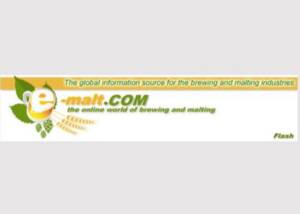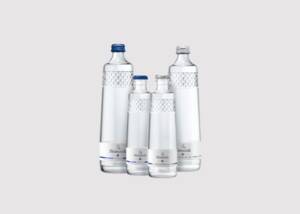Fruit juice association publishes current data Germany is the world champion in fruit juice consumption
News General news
With a per capita consumption of 28 litres of fruit juice and fruit nectar, Germany is ahead in a global comparison. "Consumers particularly appreciate the innovative products on the market that offer them added value and serve their need for natural foods," says Klaus Heitlinger, Managing Director of the Association of the German Fruit Juice Industry (VdF).

"Therefore, high-quality direct juices, smoothies and juice shots can expand their market shares," Heitlinger explains further. The fruit juice association also sees stable demand for the classics orange and apple. Overall, the market volume is just under 3.2 billion euros, a slight increase of 3 per cent over the previous year.
While fruit juice consumption remained stable at 20.4 litres in 2022, per capita consumption of fruit nectar fell from 8.1 to 7.6 litres, according to the Fruit Juice Association. The reason for this was price increases for cherry and redcurrant nectar, which followed a strained raw material situation and associated cost increases. In the case of direct juices, apple juices in particular were able to expand their market share, which is due to the diverse range of regional fruit juices. For decades, these juices have been an integral part of the product range of numerous wine press houses in Germany. For them, sourcing fruit from the region is the most important source for their raw material. In 2022, fruit juice producers pressed a total of 382 million litres from orchard apples and dessert apples, 68 million litres of which were organic. The quantity pressed was thus in line with the long-term average. The fruit juices in Germany are bottled, among other things, in the association's own VdF returnable glass system, which has been established on the market for over 50 years and is currently enjoying increasing popularity. Its current market share is 12.5 per cent.
Fruit juice production in challenging times
The fruit juice market in Germany is one of the most important in the world and an important part of the beverage industry in this country. Weather-related harvest fluctuations and the associated availability of raw materials are part of the normal business operations of fruit juice producers. However, the weather extremes of recent years and the sometimes exponential cost increases along the entire value chain are steadily increasing the economic risk for the companies. VdF Managing Director Heitlinger hopes for understanding on the part of the trade and consumers: "Mutual understanding and acceptance for the greatly increased expenditure on the part of our member companies is a decisive factor for the sustainable safeguarding of the extraordinarily diverse German fruit juice market with hundreds of companies, from the regionally operating wine press to the internationally positioned branded company." Currently, some 330 fruit juice producers in Germany produce 3.1 billion litres of juice, nectar and still fruit juice drinks.










